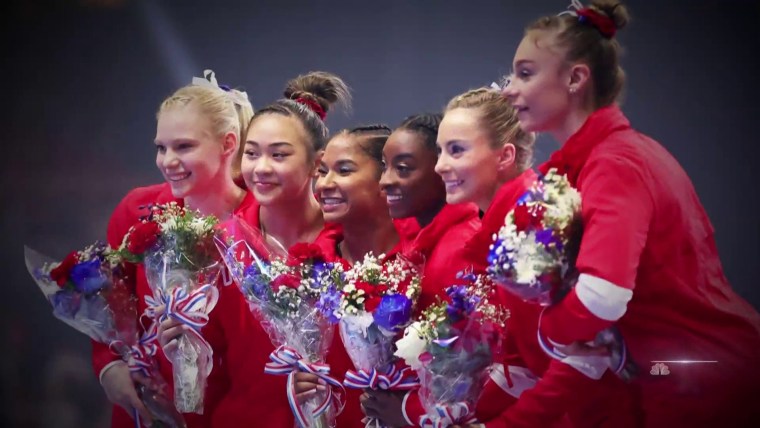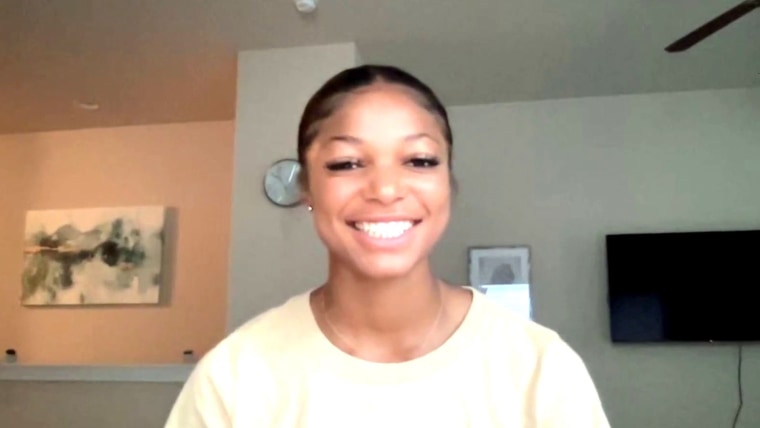Former U.S. Olympic swimmer Tara Kirk Sell was in Russia to compete in the World Cup swimming circuit in 2006 and remembers the Moscow crowd’s reaction when her name was announced just before she dove into the pool.
“It was dead silent,” Kirk Sell said.
Athletes taking part in the Tokyo Olympics this year are also likely to hear crickets when they compete because the Japanese organizers and the International Olympic Committee, concerned about containing the pandemic, are limiting the number of spectators to no more than 10,000 in the venues.
The smaller-than-usual crowds will be almost entirely Japanese, and they won’t be allowed to cheer or sing or chant, because that’s one way of spreading the coronavirus.
How athletes from around the world will react to not having somebody in the stands cheering them on remains to be seen. But Kirk Sell, who won a silver medal for the U.S. at the Athens Games in 2004 and is now a professor at the Johns Hopkins Bloomberg School of Public Health, said she suspects most of the Olympic athletes are psychologically up for the challenge.
“My initial thoughts are that the lack of fans will be weird for some of the athletes, but at the same time, many of them likely have competed in similar circumstances before, albeit not at that level,” Kirk Sell said. “When I did the World Cup circuit in swimming, it drew a large number of international swimmers. But the crowd was almost entirely domestic.”
Still, the silence may be jarring to some athletes and could be a factor in the upcoming Olympic Games.
“While some [athletes] might often get a boost from a frantically cheering crowd, there are others who perform just as well as or better than normal without the distraction,” she said.
The IOC has put the kibosh on cheering — along with hugging, high-fiving and hand-shaking, but not clapping — at the Olympic Games that take place July 23 to Aug. 8 and the Paralympics from Aug. 24 to Sept. 5.
Also, unlike previous games, athletes won’t be allowed to visit venues as spectators and could be barred from competing if they're caught.
Sam Sommers, a psychology professor at Tufts University and co-author of “This Is Your Brain on Sports,” said people perform differently in front of an audience than they do when they are alone.
Among other things, the heart beats faster and it can make it easier for some to focus on a well-practiced task, he said.
That said, for some of the athletes, the competition in Tokyo could feel very familiar and thus reassuring.
“The experience of competing without spectators might not be so different from their practice sessions,” Sommers said.
Professional basketball and baseball players got a taste of what American Olympians are about to experience when the NBA and MLB seasons resumed in 2020 and there was hardly anybody in the stands.
“It was a surreal experience,” Sommers said, but there haven’t been any studies done yet on how top athletes performed during the pandemic.
“We really don’t know yet how competing on this level without an audience will affect athletes because the data is not there yet,” he said. “Most of the research was done decades ago.”
Kay Porter, a psychologist who has worked with generations of athletes and prefers to be called a “mental preparation specialist,” credited the small-but-enthusiastic crowd watching the recently completed Olympic trials in Eugene, Oregon, with helping the athletes power through the record-setting heat that tortured the region.
One of them, Sydney McLaughlin, broke the world’s 400-meter hurdles record when she qualified for her second Olympics.
“It was quite interesting,” said Porter, author of “The Mental Athlete.” “The stadium was half-full, but they made a helluva lot of noise, and several of the athletes told me it really did help them get through the heat.”
Athletes who take part in sports like track and field and soccer appear to benefit from having people cheer them on, Porter said.
Long jumpers and pole vaulters have been known to psych themselves up with getting the crowd to clap in rhythm, she said.
In other Olympic sports like shooting or golfing, cheering "can be a distraction," Porter said. "They’re concentrating on what they’re doing and they have to block everything else out."
But the Tokyo Olympics, coming at the tail end of a deadly pandemic that delayed the games by a year and paralyzed the world, presents unprecedented challenges for the athletes participating in them, Porter said. Not having a cheering section is just one of them.
“Nobody really knows how they’re going to react,” Porter said.
"impact" - Google News
July 04, 2021 at 03:30PM
https://ift.tt/3dGua8d
And the crowd goes … silent? How no cheering could impact Olympic performance - NBC News
"impact" - Google News
https://ift.tt/2RIFll8
https://ift.tt/3fk35XJ
Bagikan Berita Ini

















0 Response to "And the crowd goes … silent? How no cheering could impact Olympic performance - NBC News"
Post a Comment